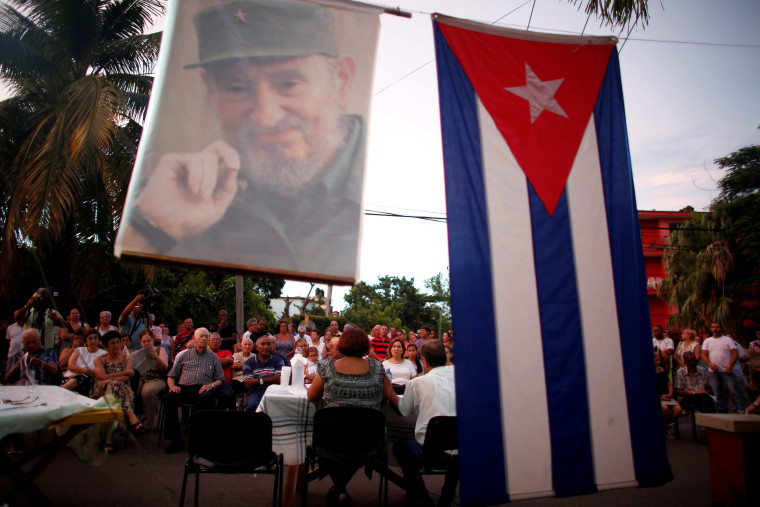MIAMI — There is more support for the U.S. embargo on Cuba among Cuban-Americans in Miami-Dade county than there was two years ago, according to a poll released today by Florida International University.
The vast majority of Cuban-Americans, over 80 percent, in 2016 and in the poll released today believe the embargo has not worked.
Yet, support for the embargo is now evenly split with 51 percent supporting the embargo and 49 percent opposing it. Around 11 percent of respondents remained undecided.
Just two years ago, 63 percent of respondents opposed continuing the embargo.

The poll did find that 63 percent of people support the establishment of diplomatic relations. In addition, 65 percent support the continuation of people-to-people programs and 57 percent favor unrestricted travel by all Americans.
The shift in attitude was found among Cubans who came to the U.S. before 1980, who had a more supportive attitude towards the Obama administration rapprochement with Cuba two years ago. This group changed their minds by over 10 points.
Those who came to the U.S. before 1995 are more keen on the embargo, while those who came after, as well as second and third generation Cuban-Americans, are less enthusiastic about it, the poll found.
The numbers don’t say why attitudes have shifted.
“My guess is that there are a variety of reasons. Part of it could be the change in national narrative,” said Guillermo Grenier, Chair of the Department of Global and Sociocultural Studies at FIU and one of the authors of the study. “Part of it is the new more hostile attitude towards Cuba. The other part could be that Obama did promise many things would change and ultimately nothing has changed.”
The Obama administration restored diplomatic ties with Cuba in 2015 after two years of secret negotiations and poked holes at the embargo. Obama argued that nearly 60 years of hostility had not worked and thawing bilateral relations would catalyze reforms over a long-term period. Trump took office saying the deal was one-sided and in 2017 reversed some of those policy changes by implementing travel restrictions. The administration has also tightened sanctions. But most of the Obama-era policies have remained intact.
Grenier noted another reason for the shift may be that not enough changes have taken place in Cuba after Fidel Castro died and his brother Raul Castro stepped down in April. The attitude might be “nothing has changed so let’s double down on the embargo,” Grenier said.
Grenier and Hugh Gladwin, past director for Public Opinion and Research, also noted in their poll that classifying the health incidents that took place at the U.S. embassy in Havana as “attacks” rather than a “public health concern,” could have also contributed to the shift in support for the embargo.
The U.S. Embassy in Havana was cut by 60 percent when staff complained about headaches, nausea, and other ailments after hearing loud noises in their homes and hotel rooms.
Most respondents, 68 percent, are in favor of maintaining and expanding business relations by American companies in Cuba.
Grenier, and Gladwin wrote that the community is of two minds when it comes to engaging economically with the island. “On one hand, they support the existing business relationships established during the Obama period. At the same time, there is a strong retrenchment of support for the embargo.”
Few expect major political changes to occur in Cuba this year. Only 12 percent said changes are occurring now or will occur within one year, while 38 percent said changes would never occur.
FIU began conducting Cuba polls in 1991. The 2018 poll was conducted just after the elections, between November 14 and December 1, 2018. A total of 1,001 Cuban-Americans were surveyed by phone. The margin of error is plus or minus 3.1 percent.
“You never really know why people change their minds. There are a lot of social forces at work that make doubling down on a hard line, not irrational - even though it hasn’t worked for 60 years,” Grenier said.


